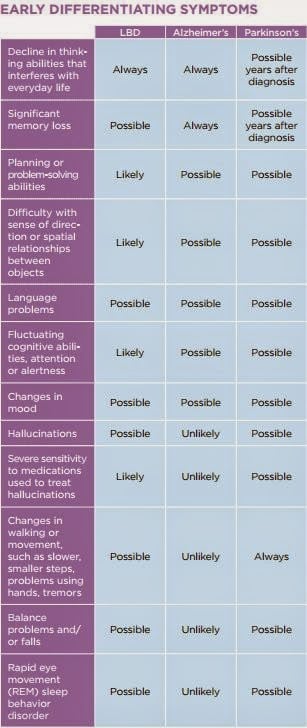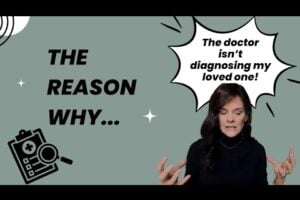According to the Lewy Body Dementia Association (LBDA), accurate and early diagnosis is critical because people with LBD typically have sensitivities to medication, and many drugs prescribed for Alzheimer’s can be very harmful to those with LBD.
Although, LBD is the second most common cause of progressive dementia it is not well recognized by physicians, especially primary care and general health care providers.
Drug Dangers
“While the symptoms of LBD may be similar to Alzheimer’s and Parkinson’s disease, the treatment strategy is more challenging because fewer medications can be used safely,” warns Howard I. Hurtig, M.D., Chair, Department of Neurology, Pennsylvania Hospital, and member of the LBDA Scientific Advisory Council. “I cannot overemphasize the need to avoid medications that can worsen the symptoms of LBD. Every patient with this disease and their caregivers should be familiar with the list of acceptable and forbidden drugs.”
Is it Alzheimer’s or LBD?
These two diseases share some clinical and biological similarities that can make them difficult for many physicians to distinguish. Dementia experts are more experienced at differentiating between dementia types. Alzheimer’s disease affects cognitive function, including making new experiences into memories. The disorder in LBD affects different aspects of cognition, such as problem solving and complex reasoning and movement.
Free Booklets
LBDA has issued a series of brochures, including:
- Is It Lewy? Recognizing when it’s not Parkinson’s or Alzheimer’s Disease
The brochure includes the LBDA’s symptom comparison chart (above), along with more in-depth information that can help clarify the confusion.

by McKeith IG, Boeve BF, Dickson DW, et al. Edited by Lukelahood. is licensed under CC BY 4.0
A Different Diagnosis
Lewy body dementia, which affects 1.4 million Americans, refers to two related diagnoses: dementia with Lewy bodies (DLB) and Parkinson’s disease dementia (PDD). Both DLB and PDD are considered Lewy body dementias. With DLB, cognitive (thinking) symptoms appear before Parkinson-like movement problems. With PDD, disabling cognitive symptoms do not develop until more than a year after movement problems begin.
LBD is characterized by an abnormal build up of Lewy bodies (alpha-synuclein protein deposits) in the areas of the brain that regulate behavior, memory, movement and personality. The most prominent symptoms of Parkinson’s disease affect motor abilities. Alzheimer’s disease primarily affects areas of the brain involving learning and memory. A specialist like a neurologist, geriatric psychiatrist or a neuropsychologist may be needed to distinguish the symptoms and provide an accurate diagnosis.
About the Lewy Body Dementia Association: The Lewy Body Dementia Association (LBDA) is a 501(c)(3) nonprofit organization dedicated to raising awareness of Lewy body dementias (LBD), promoting scientific advances, and supporting people with LBD, their families and caregivers. LBD, a complex disease that can present with a range of physical, cognitive, and behavioral symptoms, is a “family disease.” It dramatically affects not only the person diagnosed but also the primary caregiver. A national health organization, LBDA supports all those affected by Lewy body dementias through outreach, education and research. To learn more about LBD and LBDA, please visit lbda.org.
Source:













The free information does not have a drop down box for Canadian addresses unfortunately